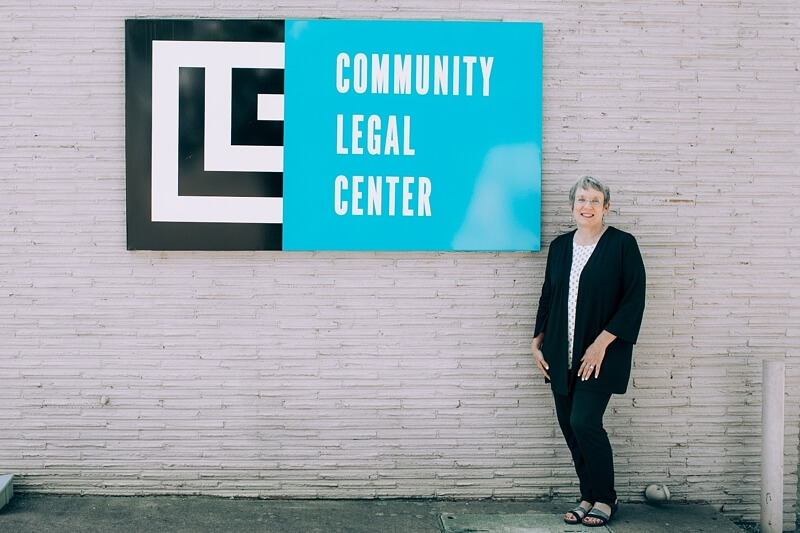After two decades serving high-powered, high-profile clients at Baker, Donelson, Bearman, Caldwell & Berkowitz, P.C., Anne Mathes embarked on a new phase of her law career as the Executive Director of the Community Legal Center (CLC). Her efforts are now focused on making it possible for the working poor and underserved of Memphis to access essential civil legal services. As the CLC welcomes the community to join their 25th anniversary Silver Celebration at Crosstown Concourse later this year (mark your calendars for November 19!), we sat down with Anne to discuss her journey and her plans for the future. Welcome our newest FACE of Memphis, Anne Mathes!
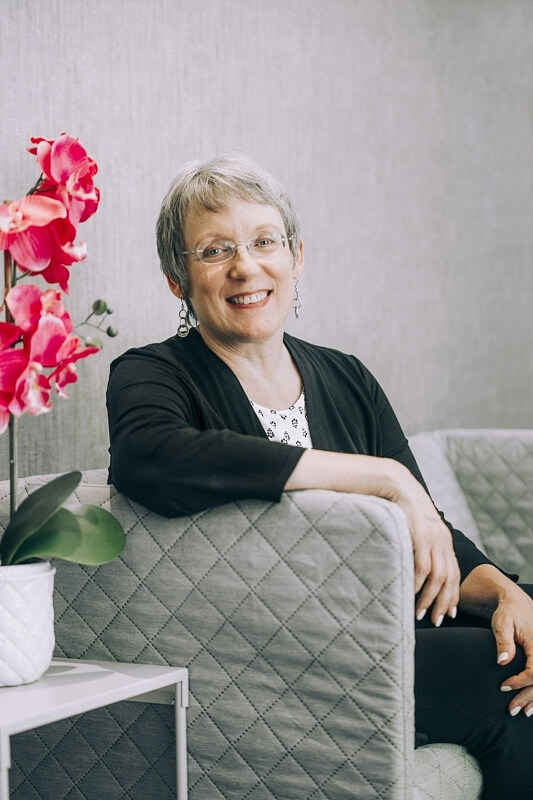
Where were you born and what was your upbringing like?
I was born in Murfreesboro, actually, at an Air Force base over there. My dad was a career military guy in the Air Force, and we did the thing that people d0: We moved a lot. A lot of my upbringing was that every two or three years I was going into a new situation, making friends quickly. I have said many times it’s one of the greatest skill sets that I think I developed.
How did you find your way to Memphis?
My dad and my mother were actually from Memphis, so it was home base for us. Whenever we had to leave, we would come back here. I went to Rhodes College, back when it was Southwestern, so that brought me back in. They retired here, so we all came back eventually.
Did you have any exposure to the field of law as you were growing up or going through school?
Not really. I was more interested in science. That’s where my interests lay. I worked for a time as a medical technologist, but so much of what I enjoyed about life was books and words, and that was not a part of that. I was in my mid-20s when I decided to go to law school. No one in my family was a lawyer, and I didn’t know any lawyers. I just thought, well they write, they read and they use their words.
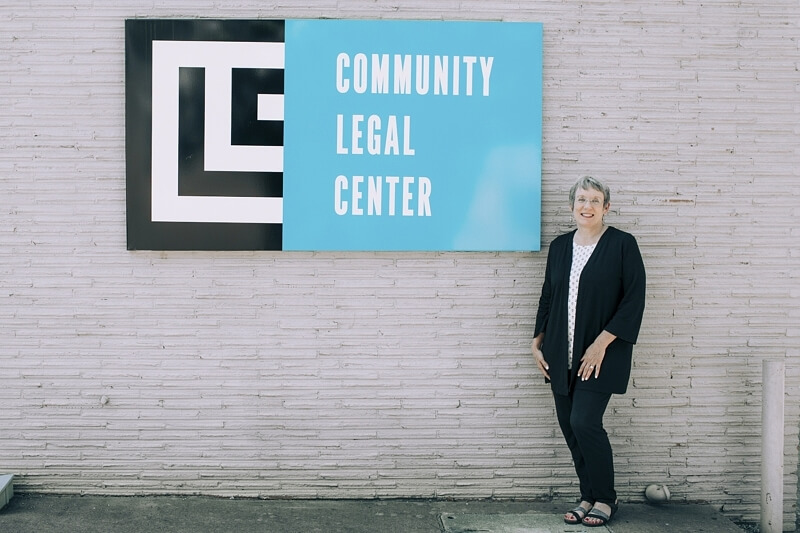
Did you have female mentors in your field or have you had the opportunity to serve in that role?
There was a group of us that were about the same age in my early days at Baker Donelson and we mentored each other — that’s how I would put it. There were not a lot of women who had come before us. This was the mid-’80s. I’ve never really put that into words before, but I think we mentored each other.
I will say that mentoring is my superpower. I think I identify talent, and I really enjoy mentoring other people.
How has your perspective on your work changed as you’ve transitioned from a private firm into the nonprofit world?
I had no idea how much need there was out there. I have always known Memphis was a philanthropic city, with lots of people trying to do good, but I just didn’t know how much it’s needed. My biggest change of perspective is understanding how privileged I was and how many people need our help.
Running a nonprofit is the hardest thing I’ve ever done, and I practiced law at a very demanding level at a top firm. This is hard.
RELATED: 4 Memphis Nonprofits All Local Women Should Know About
When do you feel most professionally fulfilled?
Well, I’ve never been more proud to be a lawyer. I am not the one who does the hands-on work with our clients— that’s our lawyers who are on staff. Hearing the stories that they share with me, seeing the work that they do, is just really very satisfying to me. I feel like what I’m doing is important when I come to work every day.
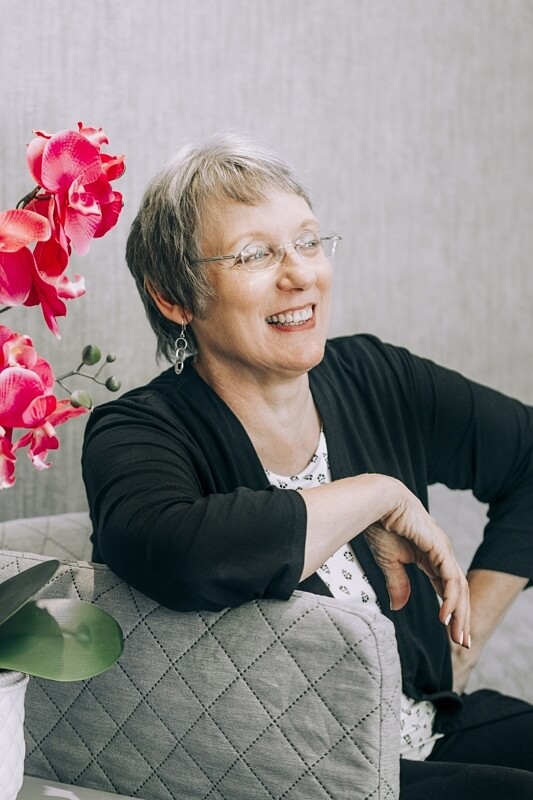
How do you avoid being overwhelmed by the scope of your work?
What I think is true is that there is a balance. I think some people are more able to have that than others. I see that in our staff. My job is to watch them and try to help them and make sure that they’re not overwhelmed. We’ve done some self-care workshops. We brought people in to try to help them. In particular, our immigration practice has been pretty overwhelming. I think we each just have to take care of ourselves first. Because if you don’t, you can’t do the work for the people who need you the most.
There is a social focus on criminal justice reform at the moment. How does civil law fit into the conversation of what Memphis needs and how it can move forward?
Civil justice changes people’s lives in so many ways. If you keep someone from being evicted, or help them get their lemon car fixed, or help them get a divorce — these are all things that really just keep people working and engaged in life. Civil legal services are social services. This is not fluff. A lot of the people who call us really don’t know how their problems can be addressed. If we don’t somehow provide these services at a low or no cost, then people are going to be stuck. They are not going to have justice. Expungement and reform around imprisonment, and helping people out of that and back into life, is hugely important. But many people who never cross into the criminal justice system need help, too.
After such a major transition at this point in your career, what do you envision comes next?
My husband and I love to travel. We also have a grandchild now, a 6-month-old, so that is just a wonderful thing — just spending time with him. I have become quite the dog lover, I think partly because it is so pleasant to just have something uncomplicated that is part of your life and loves you. So enjoying those dogs. But this place is pretty compelling to be here for a bit longer.
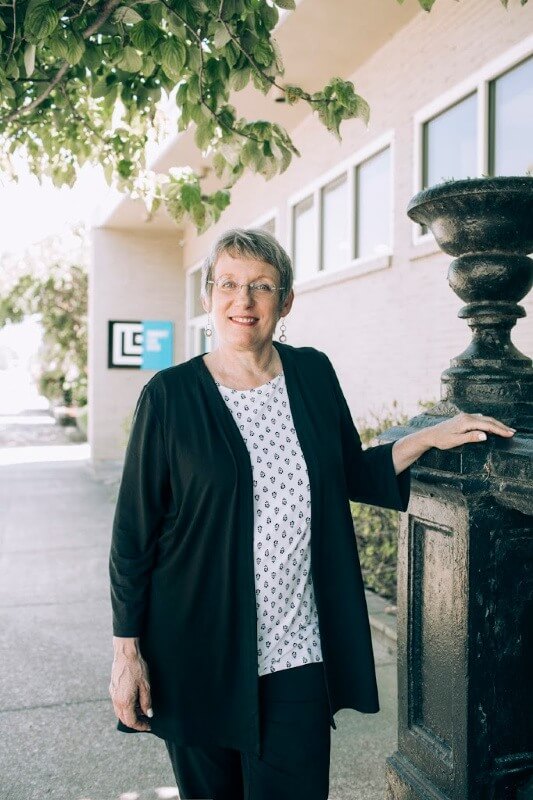
What do you love most about Memphis?
We’re just so honest. I just think, in Memphis, we face ourselves eventually. It’s a city where people can be themselves. I don’t see a lot of the kind of societal expectations that seem to limit people elsewhere. I’ve heard this from young professionals who come here from other places. That you’re much more able to be yourself here.
Where’s the first place that you take people that are visiting?
We’ll bring them downtown, to the National Civil Rights Museum, to the walk along the river — and just all the different fun things on Main Street that there are to do now.
RELATED: Things to Do in Memphis Before Summer Ends
What is your best advice?
I would say not to be afraid of change. You may not know the way forward but you may know a way that has closed to you. And sometimes that is as important as having it all figured out. You have to have the courage to know when it’s time to do something new.
What are three things that you can’t live without?
The first thing that comes to mind is coffee. Solitude is very important to me. And a good book. Those three things make me happy, and all together, even better.
Thank you, Anne. And thank you to Abbey Bratcher for the beautiful photos of Anne at the Community Legal Center.
**********
Want insider tips from financial experts? Check out our expert series with Reliant Investment Management. In our latest installment, they share the six steps that will put you firmly on the path to financial security. Click HERE!



















